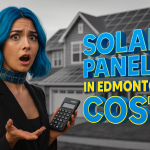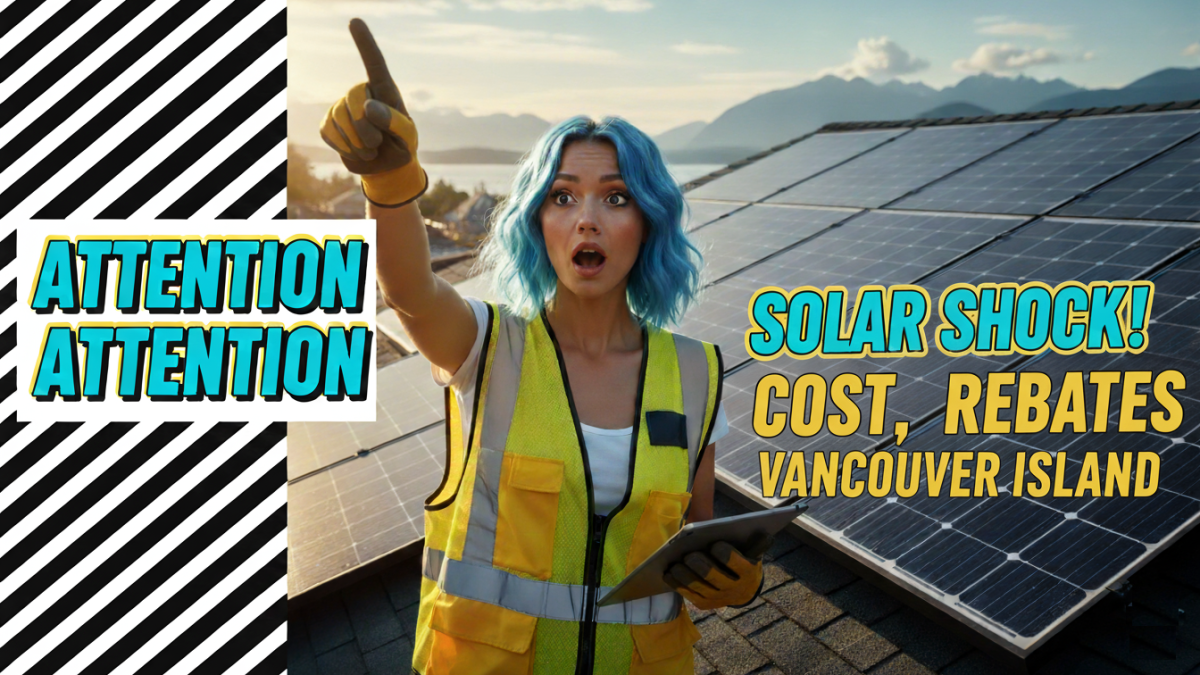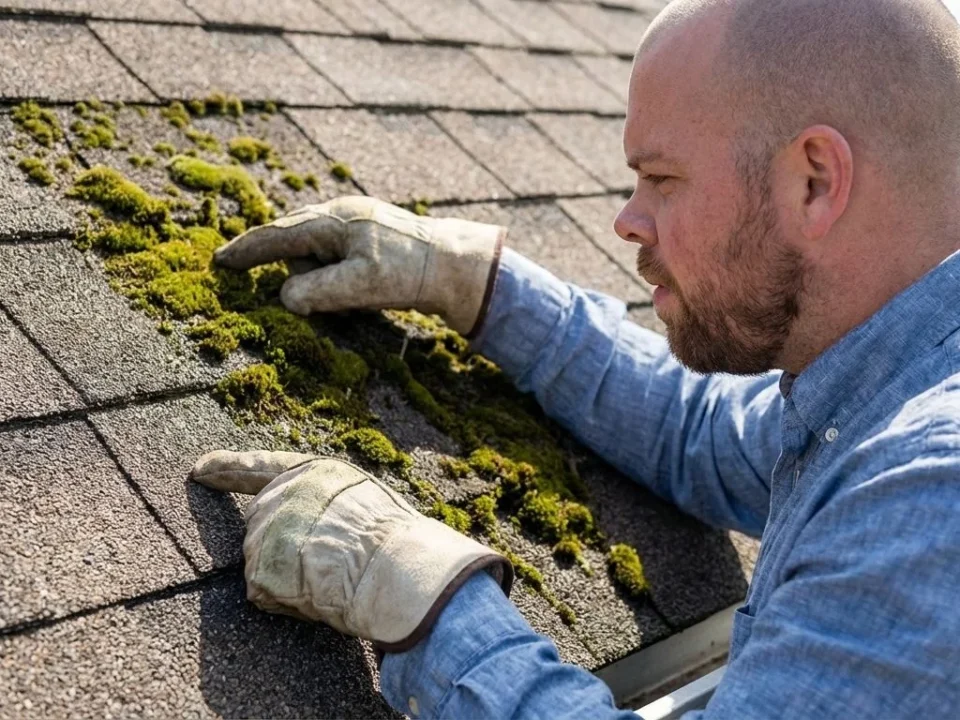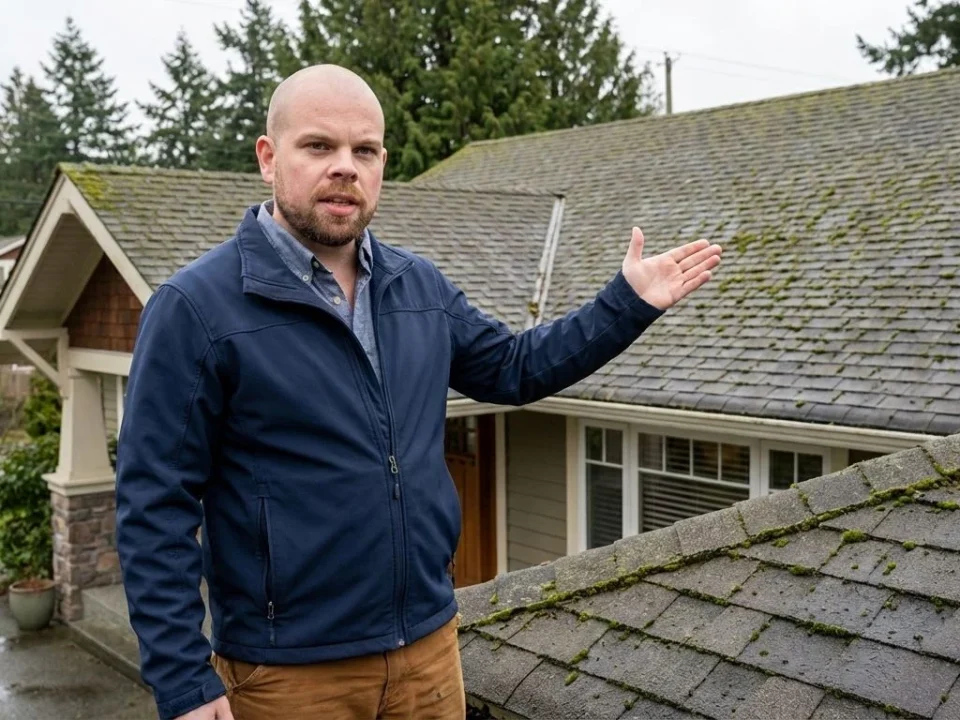
Solar Panels in Edmonton Cost, Rebates for Installing it Into Your Roof?
August 28, 2025
Upcoming Solar Panel Rebates & Incentives In Quebec 2025
September 1, 2025Let’s get straight to it. You’re considering solar panels for your home on Vancouver Island and want the real story. My name is Vitaliy Lano, and I’ve spent over a decade helping Canadians navigate their solar options. Here on the island, the numbers are compelling, but there are some real-world details you need to know. We’ll look at the hard costs, the actual rebates available right now, and the challenges you might face.

How Much Does Solar Panel Installation Cost in Vancouver Island?
The first question is always about the bottom line. On Vancouver Island, the all-in cost to install solar panels typically lands between $2.90 and $3.50 per watt.
What does that mean for a typical home? An 8-kilowatt (kW) residential solar system is a common size to significantly reduce or even eliminate a home’s electricity bill. Before any incentives, you’re looking at a gross cost of roughly $23,200 to $28,000. A smaller 5 kW system would be in the ballpark of $14,500 to $17,500.

These are starting figures. Your final cost will depend on a few key variables.
Solar Panels BC Relevant posts
What’s in the Price of a Solar System?
- System Size: This is the biggest cost driver. The more power you need, the more panels you’ll install, and the higher the total cost. The good news is the price per watt usually drops for larger systems, giving you better value.
- Equipment Quality: Not all solar panels and inverters are the same. High-efficiency panels from premium brands will cost more upfront than standard options, but they also generate more power over their 25+ year lifespan.
- Your Roof: A simple, south-facing roof is an installer’s dream and costs less to work on. If your roof has multiple angles, dormers, or a steep pitch, it requires more labour and specialized mounting hardware, which adds to the price.
- The Installer: The company you choose matters. Established, local solar panel installation experts with Red Seal electricians might have higher quotes, but they bring crucial experience, solid warranties, and local accountability.

Are There Rebates or Incentives to Reduce Solar Panel Costs in Vancouver?
Yes, and this is where going solar in B.C. gets much more interesting. You can stack federal and provincial incentives to cut the initial cost significantly.
- Canada Greener Homes Grant: This federal program offers up to $5,000 for home energy retrofits, including solar panels. Important: The program has stopped accepting new applicants, but if you’re already in the system, you have until December 31, 2025, to complete your installation.
- Canada Greener Homes Loan: This is a game-changer. It’s an interest-free loan of up to $40,000 with a 10-year repayment term. This financing makes the upfront cost manageable for almost any homeowner.
- BC Hydro Solar and Battery Rebate: As of July 2024, BC Hydro launched a new program offering a rebate of $1 per watt of installed solar, up to a maximum of $5,000. You’d need to install a system of at least 5 kW to get the full amount. There’s also a separate rebate of up to $5,000 for installing a battery backup system.

Let’s do some quick math on that 8 kW system costing $25,000:
- Subtract the $5,000 Federal Grant.
- Subtract the $5,000 BC Hydro Rebate.
- Your net cost drops to $15,000.
You can then use the interest-free loan to cover that remaining cost. Suddenly, the switch to solar becomes a much more practical financial decision.

How to Get a Solar Panel Quote in Vancouver Island
Getting a quote is your first real step. A professional solar installer will begin with a detailed assessment.
- They’ll analyze your BC Hydro bills to understand your annual energy consumption.
- They will use satellite imagery to check your roof’s orientation, angle, and any potential shading from trees or other buildings.
- They should provide a custom system design showing the panel layout, estimated power production, and a clear breakdown of costs.
Tip for Getting Quotes: Always get at least three quotes from different companies. This allows you to compare not just the price, but the quality of the equipment proposed and the professionalism of their energy team. Ask them directly about their experience installing solar systems on Vancouver Island.

Understanding BC Hydro Net Metering
Net metering is the system that allows you to get credit for the excess solar energy your panels produce. When your panels generate more electricity than your home is using, that surplus power is sent to the grid, and your smart meter effectively spins backward.

How Does Net Metering Work with My Solar Panels?
BC Hydro tracks the energy you export to the grid and the energy you import from it. At the end of your billing year, they reconcile the two. If you’ve sent more power to the grid than you’ve used, they will pay you for that net surplus.
Here’s the catch, and it’s a big one. The rate they pay you is tied to the market price, which has recently averaged around $0.06 per kWh. This is significantly lower than the retail rate you pay BC Hydro for electricity (around $0.13/kWh). This difference is a known pain point for solar owners. You get the most financial benefit by using your solar power directly in your home, rather than exporting it.
Heads up: BC Hydro is currently reviewing its net metering rates, with a new regulatory process starting in early 2025. The future credit rate is uncertain, and this is a major problem when trying to calculate the long-term return on your investment.

Residential vs. Commercial Solar
While the core technology is the same, the scale and goals differ.
- Residential Solar: The focus is on offsetting your home’s electricity costs and gaining energy independence. These systems are typically under 15 kW.
- Commercial Solar: These are larger-scale projects for businesses designed to reduce major operational costs. The cost per watt for commercial solar is lower due to the large scale of the projects.
Off-Grid vs. Grid-Tied Solar
For most homeowners on Vancouver Island, a grid-tied system is the logical choice.
- Grid-Tied Solar System: You remain connected to BC Hydro, drawing power when needed and sending excess back. This is the most common and cost-effective setup. For safety, when the grid goes down, your system will automatically shut down too, unless you have a battery backup.
- Off-Grid Solar System: This means you are completely disconnected from the utility. You rely 100% on your solar panels and a large battery bank for power. These systems are more expensive and complex, usually reserved for remote properties where a grid connection isn’t feasible.

Choosing the Right Solar Installer on Vancouver Island
Your installer is your partner for the life of the system. Choose them carefully.
What to Look for in a Trusted Solar Panel Company
- Experience: How many systems have they installed on the island specifically?
- Certifications: Are their electricians Red Seal certified? Are they fully insured and WorkSafeBC compliant?
- Transparency: Do they provide a clear contract that explains all costs, components, and warranties?
- Reviews: What are past customers saying? Look for testimonials that discuss the entire process, from the initial quote to post-installation support.
Why Choose a Local Vancouver Island Solar Installer?
A local installer understands the unique weather patterns, the specific permitting processes with local municipalities, and has a community reputation to protect. They’re also nearby if you need service down the road. I’ve seen homeowners struggle to get timely support from mainland companies after the installation is complete. It’s a real challenge you can avoid by hiring local.
Is Solar Worth It on Vancouver Island?
Installing solar panels is a big decision, but the numbers are making more sense than ever. With BC Hydro’s electricity rates set to climb 3.75% annually for the next two years and strong rebates available to cut the upfront cost, the financial case is strong. The key




